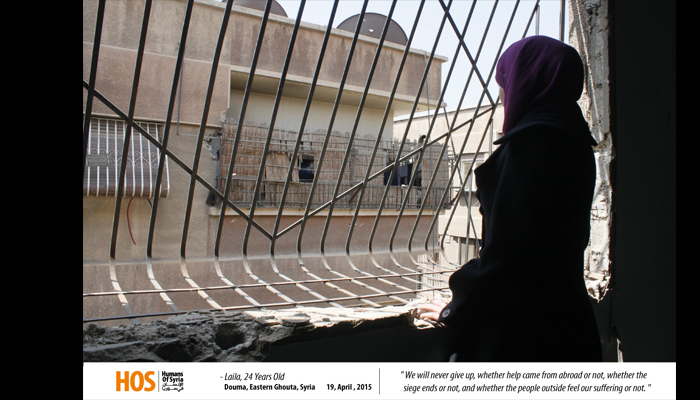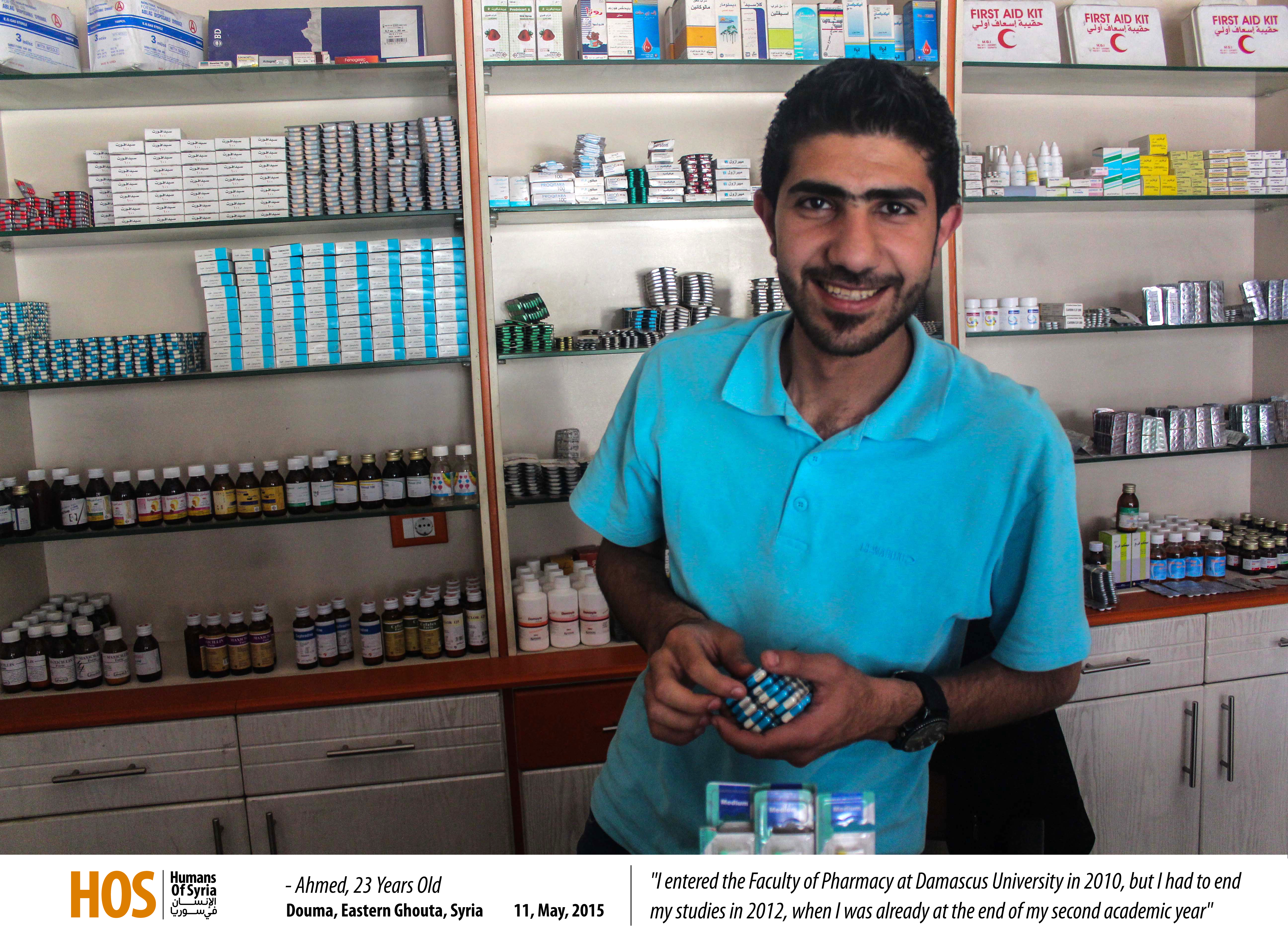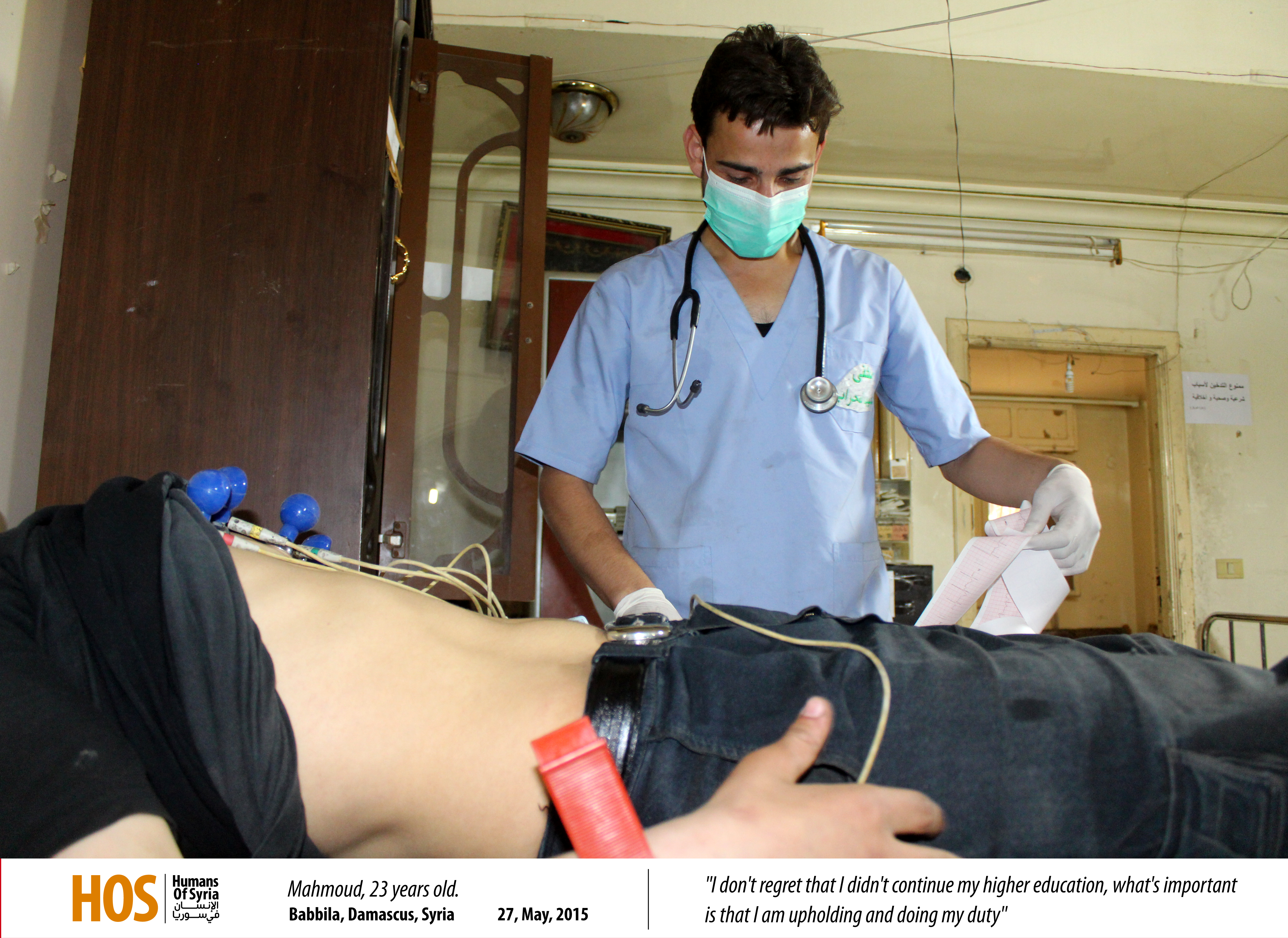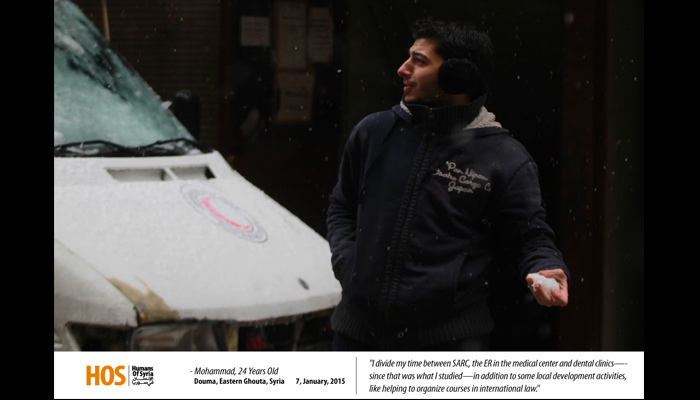Laila, 24 years old, was in the final year of her agricultural engineering studies when she left to the Eastern Ghouta (the rural suburbs east of Damascus) to celebrate Eid with her family. Overnight, the regime started its stifling siege on the area, and Leila’s hopes of ever graduating were dashed.
“At the time, I was ranked second in my class, but suddenly I found myself stuck in the siege of Eastern Ghouta,” she says, “Suddenly my life ground to a halt. In the early days, I lived on the hope that the road will open so I can return to my studies. I lived every day waiting for any news, even if it was a lie, but it was useless.”

Leila’s story is emblematic of a generation of Syrian youth who have had to abandon their higher education, or to even aspire to one. Since the beginning of the uprising Syrian universities have been hemorrhaging students due to stifling economic pressures, security concerns or simply being locked up in the many areas besieged by the regime.
Ahmad, 23 years old pharmaceutical student, was one of countless students who had to leave under threat of arrest, only two years into his university degree. “At the time, they were asking for everyone's identity cards in Damascus, and young men from Douma were at great risk of arrest. So I preferred to stay in Douma and not return to university,” he says.
Some of these students made an informed choice to leave their studies to serve a higher cause. Like Mohammad, 24 years old, who left dentistry school with two years left to graduate, in order to volunteer in Ghouta where they had a shortage of doctors.
“In the beginning there were no centralized emergency points—just separated groups of medical aid teams who I volunteered with. Over time, a medical office was opened and I volunteered in the emergency department.” Now, Mohammad is a volunteer with Syrian Arab Red Crescent (SARC) corps in the area where he does work ranging from medical and emergency response, to vaccines, psychological support and even public health lessons for school children.
Mahmoud, 23 years old law student, also chose to join the uprising over continuing his studies. Today, he serves as a field nurse and paramedic in a Babbila clinic, also under siege.
The struggle to conjure up a new life after their university dreams are dashed can take its toll on many of these students. Leila fell into depression for months, and was only able to climb out of the abyss with the help of her family and a newly found purpose in teaching. “Eventually I began trying to cope with the situation of the siege. I volunteered in a school that needed teachers in a poor remote area of Ghouta,” she says, “For the past three years, I’ve taught all age groups and all subjects, including science, math, physics, English, and chemistry, I’ve had a lot of experience in dealing with the students which qualified me to become a manager of one of the kindergartens here in Ghouta.”
The dreams of a return to normal life, and to, eventually, go back to their schools and resume their futures, flutter every now and then. But, as Mohammad reflects, always with the realisation that it will never be the same again after what they’ve seen and experienced:
“Every night before I go to bed—like so many people here—I contemplate leaving the siege, I know that a lot of things are waiting for me outside: my family, my friends, to finish university and graduate… but this outside world has become completely foreign to me and sometimes even scary. After what I experienced these two years inside the siege I do not know if I will be able to cope when I go out. Sometimes I wish that the conditions would get better here so I’m never forced to leave.”
This post is published in collaboration with Humans of Syria, Radio SouriaLi and Souriatna newspaper.






